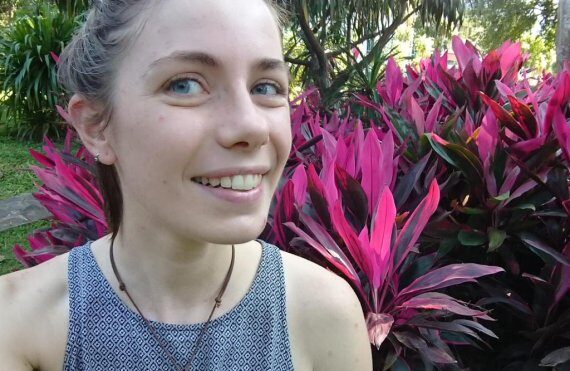Who? Evelien Konings (26), MSc student of Forest and Nature Conservation and Geo-Information Science
What? Thesis research on lianas
Where? Xishuangbanna Tropical Botanical Garden, Mengla, China
Text Anna den Hartog
‘When I was exploring thesis topics in discussion with researchers in the Forest Ecology group, I was intrigued by the idea of tropical ecological research in China. Very few people had done this type of research there. I was going to look at the way lianas adapt to water scarcity caused by climate change. It felt like unexplored territory.

When I first arrived at Xishuangbanna Tropical Botanical Garden, I was amazed by the exceptional richness of the tropical flora. From the botanical garden we soon moved on to a plot deeper in the rainforest to collect our liana samples there. It was an even more unique experience to get to know that environment with all its unusual plants and insects.
We examined the samples from the rainforest in the Botanical Garden’s facilities. Most of the researchers there were Chinese. Their work ethic is more hierarchical and they seemed to work almost all day long. After dinner they would usually go back to the lab or their computers.
It was in this environment that I struggled to balance the high expectations with my own boundaries and physical limitations. In the previous year I had been diagnosed with Lyme disease. I was still exploring my boundaries and discovering that they were different than before. I noticed, for example, that if I had a long day, just as I had done many times before, it took me days to recover. And when I didn’t take enough time for that, the symptoms resurfaced that I had when I was at my worst.
I really had to learn to stand my ground and say no
In the end my colleagues and I had to find a solution out of necessity. We had a long talk about this and we divided the work differently; leaving me with the physically less taxing work. I could work to my own schedule and take breaks when I needed to. I really had to learn to stand my ground and say no. At the start, the people I worked with couldn’t see the whole picture, but in the end they did. If there is anything I would like to pass on to future thesis students, it is to trust your instincts about what is best for you, and not to hesitate to speak up about it.
Even though I struggled, when all is said and done I consider this a healing experience that brought me closer to myself.’


